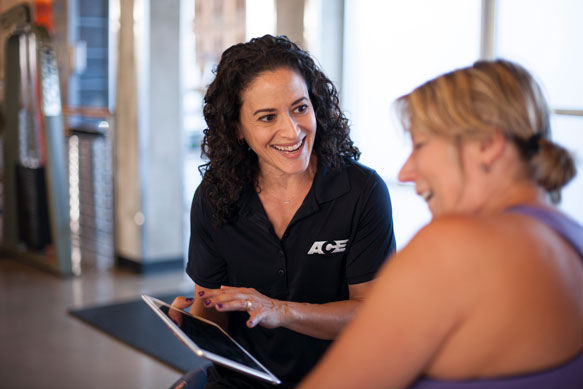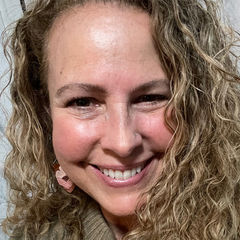
This is the second article of a three-part series on setting up your health coaching practice.
Perhaps one of the most difficult things about being a health coach is figuring out how to attract clients. There are several grassroots marketing tactics you can employ, but first, you’ll need to check your money mindset.
Money Guilt
There tends to be a less-than-productive mindset in the helping and transformational fields, with many feeling guilty for charging people for the help and services they offer.
“This actually sort of drives me nuts,” says Kathy Gruver, Ph.D., a motivational health speaker and author of Market My Practice, “because I know many people in the healing professions that feed bad for charging. You have to look at this as a business. You paid for training and schooling, an office, a website, business cards, a computer, etc. If you are offering value, and I assume you are, then you should get compensated for that and for what you’re providing. It’s a shift in mindset. Be the business!"
Ria Story, a leadership and success coach based in Atlanta, Ga., and author of Straight Talk: The Power of Effective Communication, agrees. “Your time is the most valuable asset you have. A good coach has spent years studying principles of emotional intelligence, connection, effective listening and influence. The client isn’t just paying for the 60 or 90 minutes of time with you. They are paying for the years of learning you have put into helping them get results.”
Story also points out that it is human nature to undervalue something we get for free or very cheap. “If someone pays a higher fee, they are much more likely to be highly vested in their results,” she says. “If you are giving away your services for next to nothing, you will find that you end up with clients who don't really put forth the effort into their results—and you won’t be able to buy groceries, either.”
Making enough money to at least meet your basic needs—and enough so that you’re not stressed out about being able to pay your bills—all goes along with being able to help others. You must be able to be present and available for the people you’re trying to help, which is difficult to do when you’re worried about how you’re going to pay your car payment this month. As Denise Duffield-Thomas of Money Bootcamp expressed in a recent podcast, “Being profitable is not separate or mutually exclusive from being helpful. They go hand-in-hand.”
Market Your Business—YOU!
Another hang-up you may struggle with is how to market your business when your business is you. It can feel braggy and arrogant, especially if you grew up in a home where humility was a core value. But when your business is essentially yourself, you must become comfortable talking about what you do and how you can help people.
Gruver recounts an acting class she took her freshman year in college in which the instructor asked one of the students if she was a good actor. “The student hemmed and hawed for a second and finally, with eyes turned down said, ‘Yeah, I guess so.’ The teacher said, ‘Well, you didn’t get the job,’ and turned to another student and posed the same question. The student confidently said, ‘Yes, I'm a very good actor.’ ‘Great,’ said the teacher. ‘You’re hired.’ Be proud of who you are and what you do. Toot your own horn. You have to have a presence that people know you exist. If they can’t find you, they can’t hire you.”
And how do you establish a presence?
“A website is absolutely essential,” asserts Andre Hills, international life coach, speaker and CEO of The Delta Influence. “It’s where you communicate your brand and it’s where people are going to go to learn more about your business. At the very least, any start-up should have a basic landing page that allows current and prospective clients to connect, schedule appointments and make payments.”
But isn’t social media enough to begin with?
 “While it may be possible to get started without a website,” says Story, “I definitely recommend having one. In this information age, almost everyone will want to Google you and if you don’t have a website, it will make you seem unprofessional, which doesn’t build up confidence in someone who is looking for you to help them manage aspects of their life, including their health.”
“While it may be possible to get started without a website,” says Story, “I definitely recommend having one. In this information age, almost everyone will want to Google you and if you don’t have a website, it will make you seem unprofessional, which doesn’t build up confidence in someone who is looking for you to help them manage aspects of their life, including their health.”
“Yes, yes, yes, you must, must, must have a website!” exclaims Gruver. “It doesn’t have to be fancy, but you should have your background and specialty, what your services are, hours, office address if you have one, and some eye candy, including a very professional headshot. If you have an opt-in page, give an offer, such as a short video tip or e-book.”
If you don’t have the funds to pay someone to build your website, you can do it yourself through sites like Wordpress and Wix. Many DIY website builders are free and make it fairly simple to do it yourself.
And yes, social media is also of utmost importance when it comes to promoting yourself.
Story suggests using your social media platforms to deliver content to potential clients. “Blog or publish articles on LinkedIn Pulse and share these with your network via social media. If you are continually delivering good content, people will start to share it and follow you, and it will snowball over time.”
Be careful, though, says Story, to avoid pushing services or sounding too salesy in your copy. “You should focus on delivering value, not trying to push your services on them. Forcing a message of ‘buy my stuff’ down their throats will get people to unfollow you or unsubscribe in a heartbeat. Offer tips, ideas and good solid advice via your articles. And make sure you include your website and brief info about you and your services so people who don't know you can contact you. Stay on their minds by posting social media memes and picture quotes.”
Short video clips also help you make a more personal connection to potential clients, as they get to see your face and hear your voice. Start a YouTube channel or do Facebook Live videos that include tips or pose coaching questions for viewers to consider.
Gruver offers a few more ideas. “Have a great business card and always have them on hand. Practice an elevator speech and get used to doing it. Go to local mixers, whether at a chamber of commerce, business breakfast or women’s group. Utilize social media, including Facebook, Twitter and LinkedIn. Join organizations that help promote you.”
But How Do I Really Stand Out?
Yes, technology helps with marketing nowadays, but in a sea of websites and social media pages, how do you stand out and get the attention of your ideal clients?
“Become clear about who you are and who you are not,” recommends Story. “Identify your clients, who they are and what they need that you can provide. You can’t be all things to all people and expect to stand out. Set your scope, define your niche and stick to it! It’s also important to be consistent with your brand. Your website, business cards, social media profiles and everything else should clearly be branded with you and your tagline.”
“Get crystal clear about who you are and what you stand for, as both an individual and as a professional coach,” adds Hills. “If you identify your unique self and practice being that person, then standing out will come naturally, because there’s nobody else like you.”
Beyond everything else, says Story, there’s nothing like good old-fashioned recommendations. After all, she says, “Word-of-mouth referrals from happy clients are the best way to get new clients.”





 by
by 

 “While it may be possible to get started without a website,” says Story, “I definitely recommend having one. In this information age, almost everyone will want to Google you and if you don’t have a website, it will make you seem unprofessional, which doesn’t build up confidence in someone who is looking for you to help them manage aspects of their life, including their health.”
“While it may be possible to get started without a website,” says Story, “I definitely recommend having one. In this information age, almost everyone will want to Google you and if you don’t have a website, it will make you seem unprofessional, which doesn’t build up confidence in someone who is looking for you to help them manage aspects of their life, including their health.”



